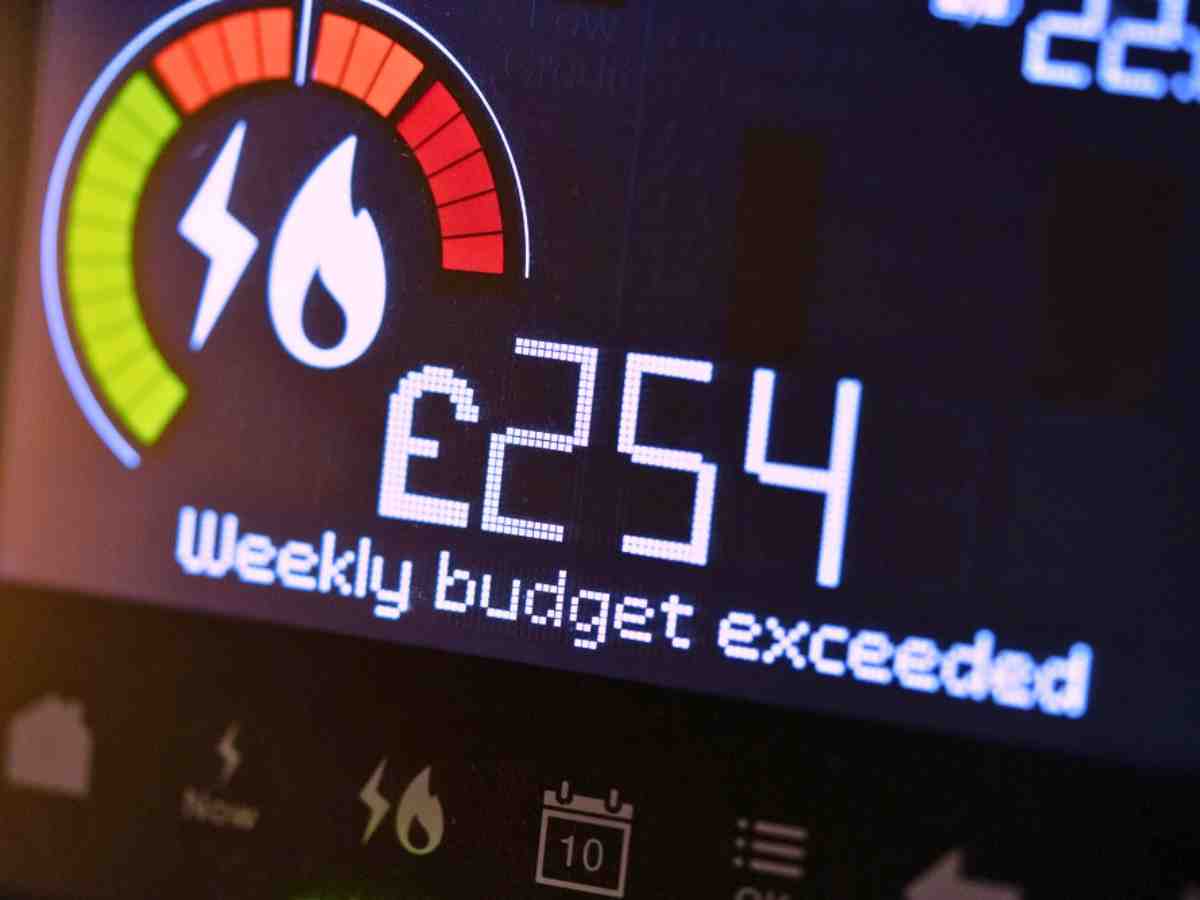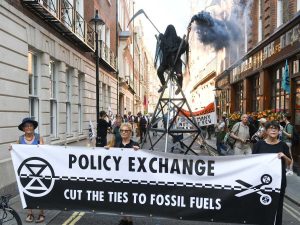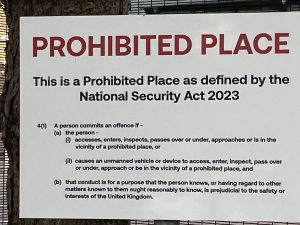Time is running out to tell energy regulator Ofgem to scrap the cruel standing charges on energy bills. The Energy For All campaign is calling on members of the public to support its efforts to get the regulator and government to ditch the flat-rate daily charge that disproportionately impacts poorer households. Of course, the demand is more urgent than ever as bills are set to soar this winter, and amidst Labour cutting winter fuel payments for millions of pensioners.
Standing charges: pushing households into fuel poverty
Energy regulator Ofgem explained that standing charges are:
set by your energy supplier and are also included in the energy price cap. Your supplier will charge you this cost each day, even if you do not use any energy on that day. The charge covers the cost to maintain the energy supply network, take meter readings, and support government social and environmental schemes.
However, as the Canary’s Steve Topple previously highlighted, these charges are compounding the impacts of the energy crisis – especially for low-income households. Notably, Topple detailed the findings of campaign group Organise’s survey on 45,000 of its members. Specifically, this was that:
Organise’s research showed that standing charges impact adequate heating for 90% of people, with:
- 84% forced to cut heating, showers, baths, washing, and drying.
- 72% left in debt or unable to top up a prepayment meter.
Those on prepayment meters are one group hit hard by standing charges.
534,462 electricity customers and 269,351 gas customers were cut off between January and March 2023. However, this Ofgem data only covers 4% of households, so ignores millions of other low income struggling households. This includes the two million homes without gas supply that pay the higher electricity standing charges and unit costs.
Given this, Fuel Poverty Action, the Peace and Justice Project, and Green New Deal Rising are urging the public to call for an end to these enormously unfair and harmful charges.
Bills set to soar
Of course, as the Canary also recently pointed out, Ofgem is raising the energy price cap in October. This means that the standing charge will also go up. This is alongside the unit price for energy – though the standing charges won’t rise nearly as much. Nevertheless, it means the standing charge will still be over £330 a year. This is on top of Labour’s winter fuel payments cut.
However, much like the unit price, Ofgem’s estimate was also only the average. In reality then, the standing charge can also be much higher for some households. This is because it can vary based on supplier, the area you live, and the type of tariff you’re on.
Obviously, this means the energy price cap could in fact hit some households twice. Firstly, for the unit price. As the Canary previously explained, this will impact:
chronically ill and disabled people who typically have greater energy needs for aids and equipment to help manage their conditions. Alongside this, people in less energy efficient housing will invariably pay more for their fuel costs as well. Naturally, many pensioners will also be among those with larger energy demands too.
Then, the increased inflated standing charge adds an extra layer to this – particularly for those in certain areas, or on prepayment meters for instance.
‘Inhumane’ standing charges cause ‘energy starvation’
Most significantly though, the point is that the standing charge makes up a disproportionate amount of low energy users’ bills.
Naturally, these typically tend to be poorer households who can’t afford to use as much in the first place. In other words, the higher proportion of what they pay for their bills goes towards the standing charge. It can even literally mean that those who haven’t used any energy for months build up this inflated cost.
The Energy For All letter therefore argues that:
High standing charges mean millions struggling on low incomes are not left with enough money for even essentials like heat and light. It’s inhumane. We don’t make everyone pay £330 before they are allowed to buy food. Energy is essential too. Standing charges mean millions suffer energy starvation.
Moreover, it drives the point that it’s not simply cruel, it also makes little economic sense, and is bad for the environment to boot. Specifically, it states that:
Standing charges mean that low users pay a much higher average unit cost than high users. But the economics of electricity, which has the highest standing charge, are the opposite. High users cause higher costs for everyone, as they mean we have to spend tens of billions of pounds upgrading the capacity of the network and generation, and force us to use more expensive and dirtier generation that drives up our prices now. We should actually be rewarding low users with lower prices, not punishing them with standing charges.
Ofgem not doing its job
So what is Ofgem proposing to do about it? As the Energy For All campaign articulated: not enough.
In January, Ofgem closed its first consultation on the standing charge. Over 30,000 members of the public responded to this, which the regulator itself acknowledged:
demonstrated the strength of feeling among the public for change
Crucially, prominent among these changes was for Ofgem to abolish the standing charge altogether. Instead, respondents said it should shift:
these costs to energy suppliers to absorb using profits
However, this is not what Ofgem has put forward. Instead, its new consultation offers so-called ‘reform’ options to the standing charge. Chief among these is shifting some of some parts of the charge to the unit price. Yet, Ofgem’s paper accompanying the consultation itself noted that
the benefits of the winners and costs of the losers are broadly similar in terms of scale.
Crucially, it underscored how its draft impact assessment found that:
- Bills would come down on average between £4-19 for 3.7 to 3.8 million low-income households.
- However, bills would actually increase between £4-18 for 2.3 to 2.4 million low-income households.
As such, the Energy For All campaign tell Ofgem in its letter that:
it is plain wrong that your latest consultation suggests that savings on standing prices must mean increases in unit prices. You need to do your job to cut costs and profits, and work with Government to get rid of the levies and taxes that are a big chunk of the standing charges.
That is, rather than once again foisting the burden on households, Ofgem should be abolishing the standing charge and making obscenely profiteering energy companies bear these costs.
Tell Ofgem what you think
So, you have until Friday 20 September to join Energy For All in telling Ofgem what you think of the discriminatory standing charge. It has penned a letter for members of the public to sign online. The campaign is sending these to Ofgem’s consultation, its CEO Jonathan Brearley, and energy minister Miatta Fahnbulleh.
Just as Ofgem raises the energy price cap, the government is callously stripping the winter fuel payments for millions of pensioners. Both are set to push many households into fuel poverty this winter.
Of course, the cruel standing charge propping up profiteering energy companies is part of this. Therefore, it’s vital we once again take action against it and tell Ofgem and the government that energy really should be for all.
Featured image via the Canary




